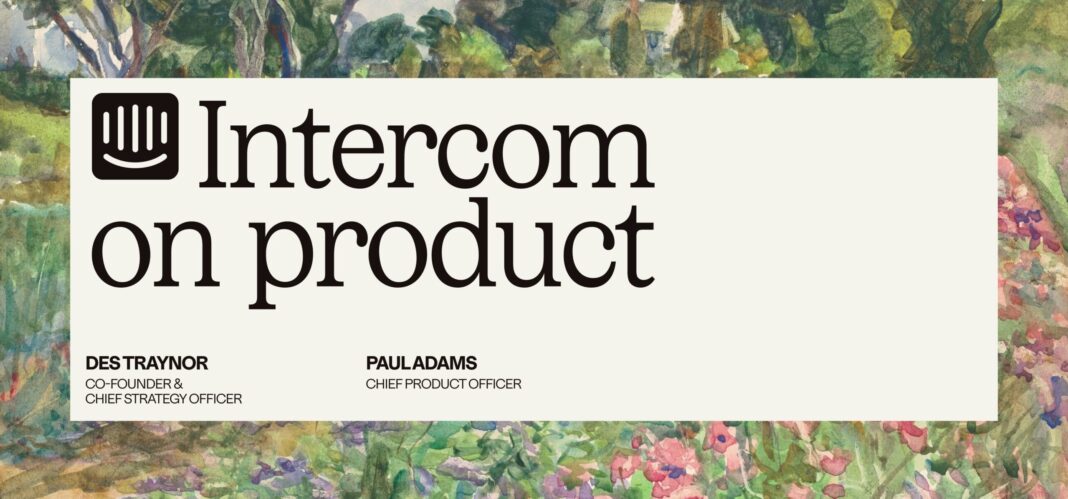In the age of generative AI, all the foundational assumptions around tech are in flux, so we must look at everything we do with fresh eyes.
We’ve spoken a lot about how AI is changing customer service and software in general. It has clearly redefined our product, as we built the leading AI agent for support, Fin, and the best AI-first customer service platform.
“How is AI shaping the way we build product?”
But how is it changing the way we run the company? How is it shaping the way we build product, and the rituals we rely on to ship consistently innovative software? How is it forcing us to reconsider our strategy as the market for customer service products is rapidly disrupted?
In the latest episode of Intercom on Product, Paul Adams, Intercom’s Chief Product Officer, and Des Traynor, our Co-founder and Chief Strategy Officer, give a behind-the-scenes look at some of the ways generative AI has transformed our internal thinking on these issues. They reflect on the technological revolution we’ve witnessed since ChatGPT’s launch, and the consequences for established product-led software companies like ours.
Here are five key takeaways from their discussion:
- AI-augmented to AI-native: Des and Paul highlight the progression from early AI applications that performed isolated tasks – like summarizing content or assisting with customer inquiries – to AI-native products that fundamentally reshape categories. Des argues that products designed from the ground up with AI at their core, rather than as an add-on, are driving the next wave of innovation. We’re seeing it up close with customer service, but the same trend will happen across industries.
- Echoes of Facebook’s “mobile moment”: Our transformation to being an AI-first company recalls a similar moment from a previous technological revolution – Mark Zuckerberg’s decisive move to prioritize mobile at Facebook, a pivotal moment during the rise of smartphones. Zuckerberg declared, “We are now a mobile company,” mandating engineers to transition to mobile development, even blocking the desktop version internally to force mobile use. This bold shift met with resistance from some employees, but ultimately positioned Facebook to thrive in the mobile era. How many companies are willing or able to undertake such aggressive adaptation during our current technological shift?
- Why we launched Fin as a standalone AI agent: We recently made the bold decision to launch Fin for Platforms, a standalone AI agent capable of operating on competitor help desk platforms such as Zendesk. As Des explains, this move reflects a strategic shift toward prioritizing AI leadership over platform exclusivity. By offering Fin broadly, we aim to capture the growing demand for AI-driven customer support, show a willingness to disrupt traditional revenue models, and adapt to a future where AI agents are central to customer service.
- The iPhone’s mixed reception: We all consider the iPhone as the most revolutionary technological device of the century, but it’s important to remember that it was met with some skepticism when it launched. Paul recalls how many folks at Google, where he worked at the time, doubted anyone would watch videos or do meaningful work on a phone, given its limitations compared to a BlackBerry. This disbelief mirrors today’s hesitation about generative AI’s transformative power. Just as the iPhone revolutionized mobile usage despite early doubts, generative AI is poised to reshape industries. The lesson: new technologies often face resistance, but their disruptive potential is profound.
- Second-order effects will determine the future: Anticipating the future impact of new technologies is complicated by the second- and third-order effects that arise – and they are inevitably hard to predict. As Des and Paul point out, the transition from horses to cars reshaped infrastructure and society in all sorts of profound ways that nobody could have anticipated. Similarly, AI’s influence will extend far beyond initial use cases, creating entirely new workflows, categories, and behaviors. The ripple effects are just beginning.

